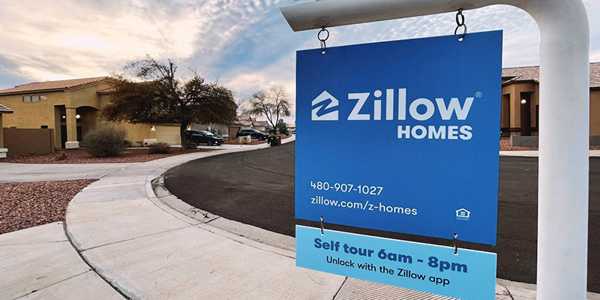Finding the perfect apartment that balances affordability and comfort can be a daunting task. With a plethora of online platforms available, it's essential to know which ones can truly aid in your search. In this guide, we will explore various platforms that can help you find cheap and comfortable apartments for rent near you, while discussing the advantages and disadvantages of each.
1. Zillow
Zillow is one of the most popular platforms for finding apartments. It's known for its comprehensive listings and user-friendly interface.

Advantages
• Extensive Database: Zillow boasts a vast database of listings, making it easier to find an apartment that meets your needs.
• User Reviews: The platform includes reviews from current and past tenants, providing insights into the living conditions and landlord reliability.
• Advanced Search Filters: You can filter your search by price range, number of bedrooms, pet policies, and more.
Disadvantages
• Outdated Listings: Some users report that listings can be outdated, leading to potential frustrations when trying to contact landlords.
• Limited Customer Support: Zillow's customer support can be slow to respond to inquiries, which might delay your apartment search.
2. Craigslist
Craigslist remains a popular choice for finding affordable apartments, particularly in urban areas.
Advantages
• Local Focus: Craigslist is divided into city-specific sections, making it easier to find listings in your immediate area.
• Direct Contact with Landlords: The platform allows for direct communication with landlords, which can expedite the rental process.
• No Fees: Unlike some other platforms, Craigslist does not charge users to access its listings.
Disadvantages
• Scams and Fraud: Craigslist is notorious for its lack of oversight, leading to potential scams. Always exercise caution and verify listings.
• Limited Search Filters: The platform lacks advanced search filters, which can make it harder to narrow down your options.
3. Apartments.com
Apartments.com is a dedicated platform for apartment searches and offers a range of features to assist renters.
Advantages
• High-Quality Listings: The platform ensures that listings are accurate and up-to-date.
• Virtual Tours: Many listings include virtual tours, allowing you to get a feel for the apartment without an in-person visit.
• Comprehensive Information: Listings often include detailed descriptions, floor plans, and neighborhood information.
Disadvantages
• Limited Free Access: Some features, such as advanced search filters, may require a subscription.
• Less Focus on Bargains: While Apartments.com has a range of listings, it might not always have the cheapest options.
4. Rent.com
Rent.com is another trusted platform for apartment hunters, offering a variety of tools to make your search easier.
Advantages
• Verified Listings: Rent.com verifies its listings to ensure accuracy and reliability.
• Move-In Specials: The platform often highlights move-in specials and discounts, helping you save money.
• User-Friendly Interface: The search process is streamlined and easy to navigate.
Disadvantages
• Less Comprehensive Database: Compared to Zillow or Apartments.com, Rent.com may have fewer listings in certain areas.
• Ads and Promotions: The site includes ads and promotional content, which can be distracting for users.
5. Trulia
Trulia, a subsidiary of Zillow, offers a robust platform with a focus on neighborhood insights.
Advantages
• Neighborhood Information: Trulia provides detailed neighborhood data, including crime rates, school ratings, and local amenities.
• Interactive Maps: The platform includes interactive maps that show nearby services and public transportation options.
• User-Friendly Design: Trulia's interface is easy to use, with clear filters and search options.
Disadvantages
• Overlap with Zillow: Since Trulia is owned by Zillow, many of the listings overlap, potentially limiting unique options.
• Less Emphasis on Bargains: While comprehensive, Trulia may not always feature the most affordable listings.
6. HotPads
HotPads is a map-based rental search engine that focuses on user convenience.
Advantages
• Map-Based Search: The platform allows you to search for apartments directly on a map, making it easy to find rentals in specific areas.
• Integration with Google Maps: This feature provides accurate directions and commute times.
• Updated Listings: HotPads regularly updates its listings to ensure they are current.
Disadvantages
• Limited Listings in Some Areas: Depending on your location, HotPads may have fewer listings compared to other platforms.
• Mobile App Limitations: While the desktop version is robust, the mobile app can be less intuitive and harder to navigate.
7. PadMapper
PadMapper aggregates listings from various sources, making it a convenient one-stop-shop for apartment searches.

Advantages
• Aggregated Listings: PadMapper pulls listings from multiple platforms, increasing the variety of options.
• Customizable Alerts: You can set up alerts for new listings that match your criteria.
• User-Friendly Interface: The platform is straightforward and easy to use.
Disadvantages
• Potential for Duplicate Listings: Since it aggregates from multiple sources, you might encounter duplicate listings.
• Less Original Content: PadMapper relies on other platforms for listings, which means it might not always have the most recent information.
8. Airbnb
While traditionally known for short-term rentals, Airbnb can be a viable option for finding longer-term apartment rentals.
Advantages
• Flexibility: Airbnb offers flexible rental terms, which can be ideal for temporary stays or month-to-month leases.
• Fully Furnished Options: Many Airbnb listings are fully furnished, saving you the hassle of buying furniture.
• User Reviews: The platform includes detailed reviews from previous tenants, helping you gauge the quality of the rental.
Disadvantages
• Higher Costs: Airbnb rentals can be more expensive than traditional long-term leases.
• Service Fees: The platform charges service fees, which can add up over time.
9. Facebook Marketplace
Facebook Marketplace has emerged as a popular platform for finding local apartment rentals.
Advantages
• Local Listings: The platform focuses on local listings, making it easier to find apartments near you.
• Community Connections: You can leverage your Facebook network to find trusted landlords and roommates.
• No Fees: Unlike some other platforms, Facebook Marketplace does not charge fees for accessing listings.
Disadvantages
• Scams and Fraud: Similar to Craigslist, be cautious of potential scams and always verify listings.
• Limited Search Filters: The platform lacks advanced search filters, which can make it harder to find specific types of rentals.
10. Roomster
Roomster specializes in helping users find roommates and shared apartments, making it a unique option for budget-conscious renters.
Advantages
• Roommate Matching: The platform helps match you with potential roommates based on your preferences.
• Social Media Integration: Roomster integrates with social media profiles, providing additional context and verification.
• Affordable Options: Shared rentals can be more affordable than renting an entire apartment on your own.
Disadvantages
• Subscription Fees: Some features, such as messaging potential roommates, require a subscription.
• Limited Listings: Roomster's focus on shared rentals means it may have fewer listings for entire apartments.
Conclusion
Navigating the plethora of online platforms for apartment hunting can be overwhelming, but understanding the advantages and disadvantages of each can help streamline your search. Whether you're looking for extensive databases, local listings, or specific features like virtual tours and neighborhood insights, there's a platform tailored to your needs. Always exercise caution, especially with platforms known for scams, and make use of user reviews and verified listings to ensure a smooth and successful apartment search. Happy hunting!
